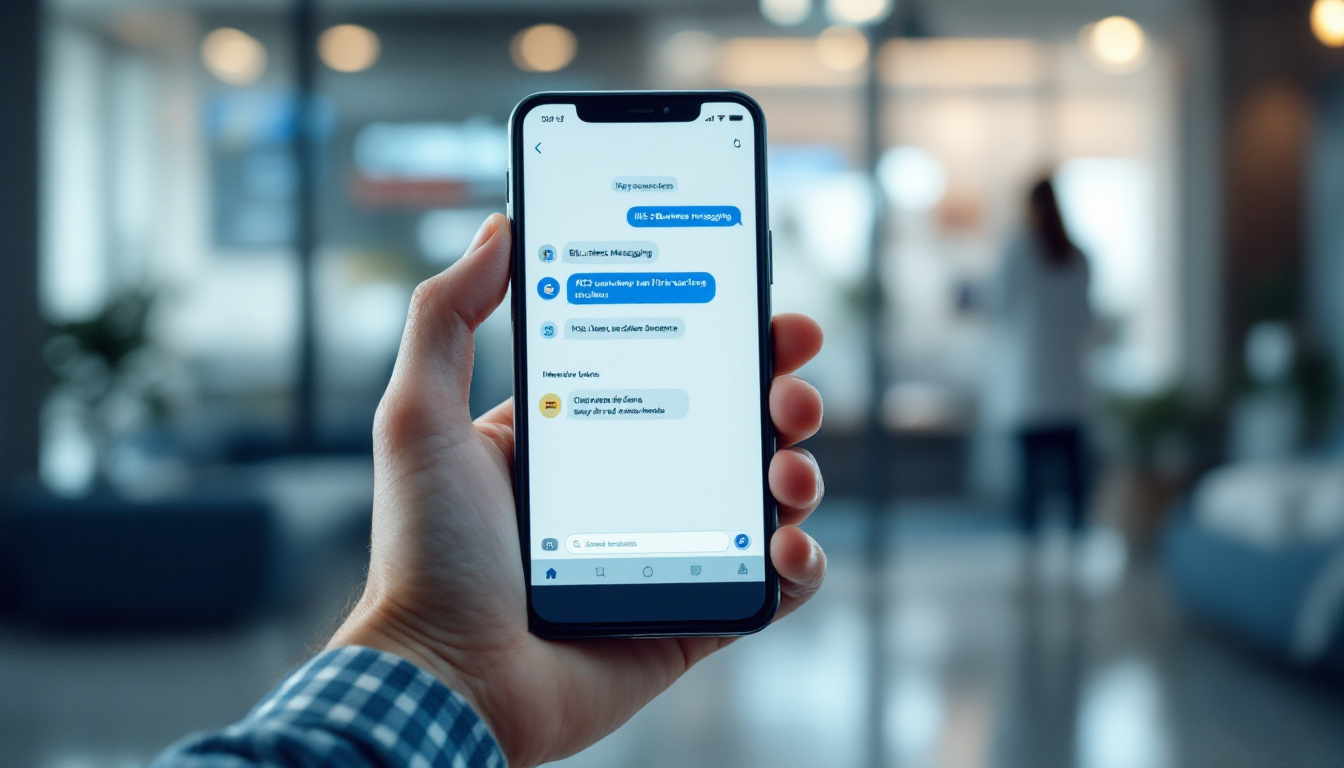Understanding RCS Business Messaging
Rich Communication Services (RCS) is a communication protocol aimed at enhancing the standard text messaging experience. Unlike traditional SMS, RCS offers features such as rich media sharing, real-time interaction, and enhanced engagement through visually appealing interfaces. This messaging format is not only more user-friendly but also provides businesses, including those in the healthcare sector, with a powerful tool for patient communication.
The Basics of RCS Business Messaging
RCS focuses on delivering a dynamic messaging experience that integrates various features designed to enable more comprehensive interactions. With RCS, users can send images, videos, and even location data, which transforms simple message exchanges into interactive conversations. Here are a few core features of RCS:
- Rich Media Support: Send images, videos, and interactive buttons.
- Read Receipts: Users get insights on whether their messages have been read.
- Real-Time Typing Indicators: Similar to modern chat apps, users see when someone is typing a response.
By utilizing these advanced features, healthcare providers can improve communication with patients, enhance service delivery, and foster stronger relationships. The ability to incorporate multimedia elements into messages not only makes the communication more engaging but also allows for clearer explanations of complex medical information, which can be crucial for patient understanding.
The Role of RCS in Healthcare
In the healthcare sector, effective communication is paramount. RCS emerges as a game-changing solution, enabling healthcare providers to send prescription refill reminders, appointment confirmations, and educational resources directly to patients’ smartphones. This capability alleviates confusion and enhances patient adherence to treatment plans.
Moreover, RCS messaging allows healthcare providers to send tailored health tips or alerts, ensuring that patients remain informed about their conditions and all relevant care aspects. This is particularly vital for patients managing chronic illnesses, where adherence to medication is crucial for preventing complications. Additionally, RCS can facilitate two-way communication, allowing patients to ask questions or express concerns directly through the messaging platform, which can lead to more personalized care and quicker responses from healthcare professionals.
Furthermore, RCS can play a significant role in public health campaigns, where healthcare organizations can disseminate important information about vaccinations, health screenings, and wellness programs. By leveraging the interactive features of RCS, these organizations can create engaging content that encourages participation and educates the public, ultimately leading to improved health outcomes. The ability to track engagement metrics through RCS also provides valuable insights for healthcare providers, enabling them to refine their communication strategies and better meet the needs of their patients.
The Importance of Efficient Prescription Refill Requests
Efficient prescription refill requests transform the patient experience by minimizing delays and miscommunications. Prescription refills are a critical aspect of ongoing patient care, and inefficiencies can lead to adverse health outcomes. Thus, integrating reliable systems for managing these requests is essential.
Challenges in Traditional Prescription Refill Methods
Traditional methods for handling prescription refills often involve cumbersome steps that can frustrate both patients and healthcare staff. Common challenges include long wait times for phone calls, miscommunication between patients and pharmacists, and missed refill reminders. Many patients find it inconvenient to reach out or check on their medication statuses, leading to interruptions in their treatment regimens.
Additionally, legacy systems often require manual input, increasing the potential for errors. This can lead to delays in patients receiving their necessary medications, which directly impacts their overall health and satisfaction. Moreover, the reliance on outdated technology can create a bottleneck in the workflow, making it difficult for healthcare professionals to manage their time effectively while ensuring that patients receive the care they need in a timely manner.
The Impact of Efficient Refill Requests on Patient Care
Streamlining prescription refill requests through improved communication methods can significantly enhance patient care. When patients receive timely notifications about refills, it not only ensures medications are taken as prescribed but also fosters a sense of attentiveness and support from healthcare providers.
Efficient refill processes contribute to better health outcomes, reducing hospitalization rates and escalating healthcare costs associated with mismanaged medication. Furthermore, when patients are engaged in their own healthcare management, they are more likely to adhere to treatment plans and follow through with necessary appointments. This proactive approach not only benefits individual patients but also alleviates the burden on healthcare systems, allowing providers to allocate resources more effectively and focus on preventive care initiatives.
Moreover, the integration of technology, such as mobile apps and automated reminders, has revolutionized the way patients interact with their prescriptions. These tools not only simplify the refill process but also empower patients by providing them with real-time access to their medication information. This transparency can lead to increased trust in healthcare providers and a more collaborative relationship, ultimately enhancing the overall quality of care delivered.
Integrating RCS Business Messaging for Prescription Refills
Implementing RCS business messaging into prescription refill systems involves a strategic approach. It requires careful planning and execution to ensure that both patients and healthcare personnel benefit from enhanced communication.
Key Considerations for Integration
When integrating RCS into prescription refill workflows, several considerations must be taken into account:
- Technology Compatibility: The existing systems and software used for managing prescriptions must be compatible with RCS messaging platforms.
- Patient Privacy: Safeguarding patient information is crucial, so compliance with regulations such as HIPAA must be ensured.
- Staff Training: Employees should be trained on new processes and tools to leverage the full potential of RCS messaging.
Addressing these considerations will set the foundation for a successful transition to RCS-enabled communication, ultimately leading to improved service delivery. Additionally, it is essential to establish a feedback loop where both patients and staff can share their experiences and suggestions. This continuous improvement process can help refine the messaging system and adapt it to the evolving needs of users, ensuring that the technology remains relevant and effective.
Potential Barriers and Solutions
Despite the benefits of RCS, there may be resistance to change from both healthcare workers and patients who are accustomed to traditional methods. To mitigate such barriers:
- Increase Awareness: Educating stakeholders about the advantages of RCS can help foster acceptance.
- Start Small: Pilot programs can introduce RCS in a controlled environment to gather feedback and make adjustments before wider implementation.
By proactively addressing potential barriers, healthcare organizations can encourage a smooth transition to this innovative communication solution. Furthermore, it may be beneficial to highlight case studies or success stories from other organizations that have successfully integrated RCS. Sharing these positive outcomes can serve as powerful motivators for both staff and patients, demonstrating the tangible benefits of improved communication, such as reduced wait times for refills, enhanced patient engagement, and overall better health outcomes. Engaging patients through interactive features of RCS, such as quick replies and rich media, can also enhance their experience and satisfaction with the prescription refill process.
Benefits of RCS Business Messaging in Prescription Refills
Integrating RCS into prescription refill processes not only streamlines communication but also brings numerous benefits that can transform patient experiences and healthcare delivery.
Improving Patient Engagement and Satisfaction
RCS promotes higher engagement levels compared to conventional messaging. Patients appreciate real-time notifications and the ability to interact directly through their devices. This immediacy fosters a sense of involvement in their healthcare process.
Furthermore, patients can respond to refill reminders with a simple tap, making the process as effortless as possible. The dynamic nature of RCS allows for the personalization of messages, enhancing overall patient satisfaction. For instance, healthcare providers can tailor reminders based on individual patient needs, such as sending specific instructions for medications that require special handling or dietary considerations, thereby improving adherence to treatment plans.
Additionally, RCS can facilitate educational content alongside refill notifications, allowing patients to receive valuable information about their medications, potential side effects, and tips for proper usage. This not only empowers patients but also encourages them to take an active role in their health management, ultimately leading to better health outcomes.
Streamlining Healthcare Operations
Healthcare operations benefit tremendously from adopting RCS business messaging. The automated features can handle routine inquiries, which reduces the administrative burden on staff and minimizes delays due to manual processes.
As a result, healthcare teams can allocate more time to patient-focused activities. With enhanced communication tools, healthcare organizations will see improved workflows, which furthers organizational efficiency and reduces costs associated with follow-up calls and unclear refill statuses. Furthermore, RCS can integrate seamlessly with existing healthcare systems, allowing for real-time updates to patient records and refill statuses, ensuring that all team members are on the same page.
This integration not only enhances the accuracy of information shared with patients but also enables healthcare providers to identify trends in medication adherence and refill patterns. By analyzing this data, organizations can implement targeted interventions for patients who may be struggling with adherence, ultimately leading to improved health outcomes and reduced hospital readmission rates. The overall efficiency gained from RCS messaging can significantly contribute to a more responsive and patient-centered healthcare environment.
Future Prospects of RCS Business Messaging in Healthcare
The future of RCS in healthcare is brimming with possibilities. As technology continues to evolve, RCS can adapt and develop new features tailored for healthcare providers and patients alike.
Emerging Trends in RCS and Healthcare
Emerging trends indicate a growing recognition of RCS’s potential within healthcare. Innovations such as AI-driven chatbot functionalities can offer additional layers of patient interaction and support. These chatbots can answer questions around prescription refills, medication management, and follow-up care, thus enhancing patient experience even further.
Moreover, RCS’s ability to integrate with other healthcare software systems will likely enhance continuity of care by providing a seamless flow of information between patients and providers. This integration can facilitate real-time updates on patient health metrics, allowing for timely interventions and personalized care plans. As patients increasingly seek digital solutions for their healthcare needs, RCS can serve as a bridge, connecting them with their healthcare teams in a more meaningful way.
Predicted Impact on the Healthcare Industry
As more healthcare organizations embrace RCS business messaging, the industry can expect transformative shifts in communication protocols. The direct impact will be evidenced in improved patient adherence to treatment, increased operational efficiencies, and greater overall satisfaction reported by both patients and healthcare staff.
The integration of RCS is poised to revolutionize prescription refill processes, making healthcare more accessible, immediate, and trustworthy—a central tenet of modern patient care. Additionally, the ability to send rich media messages, such as educational videos or interactive health tips, can empower patients with knowledge and resources that enhance their understanding of treatment options. This proactive approach to patient education can lead to more informed decision-making and better health outcomes.
Furthermore, the potential for RCS to facilitate appointment reminders and follow-up messages cannot be understated. By reducing no-show rates and ensuring patients are well-informed about their care schedules, healthcare providers can optimize their resources and improve the overall efficiency of their operations. The future of RCS in healthcare is not just about communication; it is about creating a more patient-centered ecosystem that prioritizes engagement and accessibility at every step of the healthcare journey.
Ready to Enhance Your Prescription Refill Experience?
Embrace the future of healthcare communication with nativeMsg, the RCS Business Messaging Creator. Transform your prescription refill requests into interactive, engaging experiences that patients love. Get started with nativeMsg and unlock the potential of RCS Business Messaging to boost patient satisfaction, streamline operations, and elevate your healthcare services. Get Started today and revolutionize the way you connect with your patients.
Free Trial
Get Started With RCS
Business Messaging!
Unlock the power of RCS and revolutionize your customer engagement.





